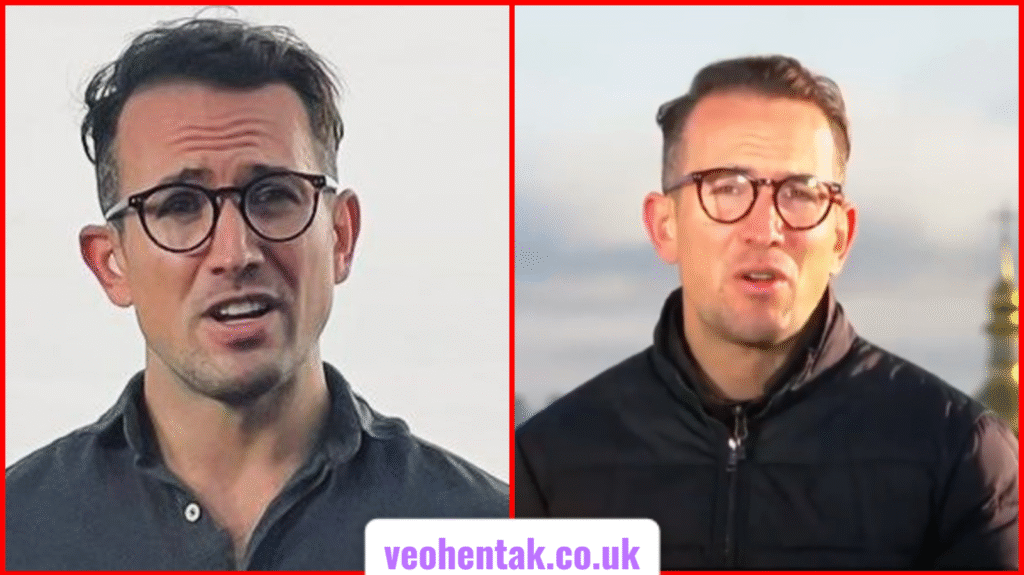People often search for Hugo Bachega nationality after seeing him report on global news. He is Brazilian, and his background shapes his view of the world and his reporting style. While nationality gives context, what really matters is his work as a journalist covering major world events.
Why folks even ask about his nationality
Funny thing, I first heard people ask “what is Hugo Bachega nationality?” on social media, like Twitter or maybe even Reddit threads. Folks saw him reporting live on TV, usually in tough places, like war zones, and they got curious. Some swore he was Brazilian because of the name, some thought he might be European, others guessed Middle Eastern just cause he was reporting from there. Kinda funny how a name or face on screen makes people start guessing.
And yeah, it’s not a small thing. People wanna know where reporters come from, cause it kinda shapes how they see the world. Like when a guy from one country covers another country’s war, folks wonder if he’s got bias, or maybe more empathy. It’s like when you meet a roofer in your town—if he’s local, you trust him a bit more cause he knows the weather and the houses here. Same thing with reporters.
The actual answer about his nationality
So here’s the straight thing: Hugo Bachega nationality is Brazilian. Yep, born in Brazil. That’s the country he’s from, and it fits with his background, the sound of his name, and even the way he sometimes carries himself when speaking English.
I remember a neighbor of mine, who’s Brazilian too, saying, “oh I knew it, that’s a Brazilian last name, no doubt.” She was proud about it, like someone from her home country out there telling the world what’s happening in war zones. People take that kinda thing personal, ya know?
Why it matters where a journalist is from
Now you might be asking, why do folks care so much about nationality? I’ll tell you—cause it gives context. If you’re watching him on BBC News or some big network, knowing he’s Brazilian adds another layer. It’s like saying, “ok, this ain’t just another British reporter, this guy comes with his own world story.”
Think about roofing again—like when storms hit. If you got a roofer who grew up right here, he gets how bad hailstones crack shingles. Same thing, a Brazilian reporter knows what it feels like to come from a place that’s diverse, sometimes messy politically, but full of resilience. That background shapes the way he tells stories.
His path from Brazil to the world
Stories I’ve read say Hugo didn’t just sit around Brazil his whole life. He studied, worked, traveled, and built his journalism career across borders. That’s common with reporters. They leave their home base to chase news, sometimes for safety, sometimes cause of opportunity.
Like, I knew this one guy, a roofer actually, who left a small town in Pakistan and started working in New York. Folks there couldn’t believe how good he was, cause he brought all these old-school tricks with him. That’s how I see Hugo too—he brings his roots but works globally.
Also read this: Josephine Burge – A Story People Remember
How nationality affects reporting style
- Here’s where it gets real interesting.
- You see, when a Brazilian reports on war, poverty, or big politics, he might frame it a bit different than a Brit or an American. ‘
- Brazil itself has had its share of unrest, corruption scandals, crime waves.
- Growing up hearing about that stuff makes you sharper maybe, less shocked when you see chaos.
- It’s like how I’ve seen homeowners in rough storm areas—they don’t panic when a roof leaks, they just get the bucket, call a roofer, and move on.
- Meanwhile, someone from a mild-weather town loses their mind over a small leak. Background changes reaction.
Misconceptions about his nationality
Some folks still argue about it online. I even saw a YouTube comment saying, “nah, he must be Italian with that name.” Others say he sounds too smooth in English to be Brazilian. But come on, people learn languages. Just cause you sound polished doesn’t mean you ain’t Brazilian.
I remember when my cousin moved to London. In two years, she had the accent down so good that cab drivers thought she was local. But she’s 100% from Lahore. That’s how it works. Hugo’s the same—Brazilian, but polished from working abroad.
Connection with Brazil’s global image
Now Brazil, as a nation, is known for football, carnival, beaches, and lately, politics that keep hitting headlines. Having someone like Hugo on global TV changes the image a bit. It’s not just Neymar or samba dancers—it’s serious reporting, war coverage, truth-telling. That’s powerful.
I once heard a Brazilian roofer in my area joke, “people only ask me about football or carnival, never roofing.” But he was proud to say, “we Brazilians, we can build too.” Hugo shows Brazilians can report the world too.
The human side of nationality
At the end of the day, nationality is just a word. Hugo Bachega is Brazilian, sure, but he’s also global. He’s lived, worked, and seen things across many countries. That’s the thing with reporters—you might be born in one place, but your life belongs to the road.
Like roofers who work storms across states. Born in one town, but they’re fixing roofs everywhere. Their ID card says one thing, but their heart belongs to many places.
Why Google floods with “hugo bachega nationality” searches
You’d laugh if you saw the search trends. Anytime Hugo pops up live during some big event, Google fills up with people typing his name plus “nationality.” That shows curiosity but also something else—we humans wanna place people in a box. We ask: where’s he from? Who’s he? Do I trust him?
Same happens when homeowners ask, “where’s this roofer company based?” If they hear it’s local, they relax. If it’s from out of town, they hesitate. That’s just human.
My personal take on it
If you ask me, I don’t think nationality should be the big deal. It matters for context, yes, but at the end of the day, the work speaks louder. Hugo’s work has been strong, clear, and brave. That’s what sticks for me.
I had a buddy once who fixed roofs better than anyone, but folks kept asking where he was from cause of his accent. After a while, he just started saying “I’m from the roof” and laughed it off. Hugo could say the same—he’s from the news.
Wrap up thought
So yeah, if you landed here searching “Hugo Bachega nationality,” the answer is: he is Brazilian. But the story is bigger than just the passport. His reporting career shows how a Brazilian can stand on global stages, cover wars, and give us stories that matter.
Like roofing, the material (nationality) is just the start—the skill, the endurance, the way you face storms—that’s what really counts.
FAQs
Q1. What is Hugo Bachega nationality?
Hugo Bachega is Brazilian.
Q2. Why do people ask about his nationality?
Because viewers get curious about his background when they see him on big news events.
Q3. Does nationality affect journalism?
Yeah, it gives context and shapes how a story is told, but skill matters more.
Q4. Is Hugo Bachega only working in Brazil?
Nope, he works worldwide, covering wars and global issues.
Q5. Why is “Hugo Bachega nationality” trending?
Cause every time he’s on TV during a big event, people rush to Google to figure out who he is and where he’s from.
Fore more info: veohentak.co.uk


